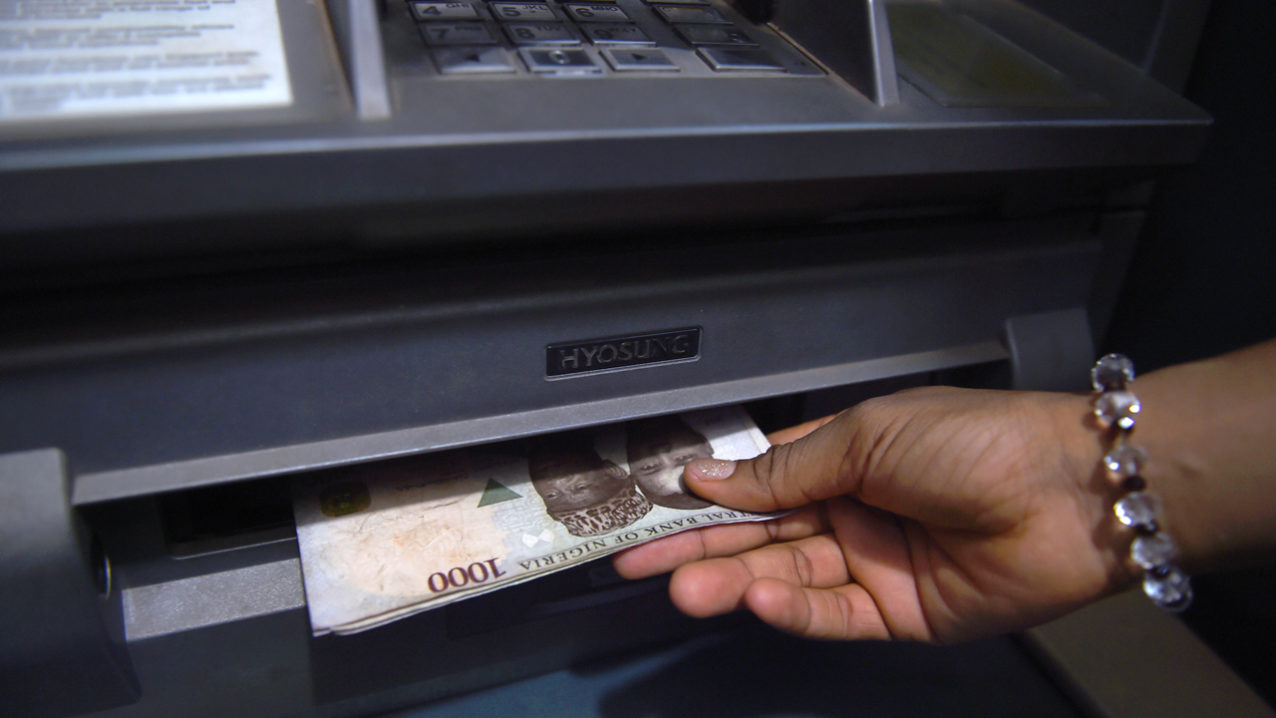Business
Despite Challenges, ATM Transactions Hit N3.5tr in Nine Months
Published
8 years agoon

- Despite Challenges, ATM Transactions Hit N3.5tr in Nine Months
Despite several challenges confronting financial transactions done in the country via the Automated Teller Machines (ATMs), N3.5 trillion deals took place through the 17, 253 ATMs spread across the country from January to September 2016.
An ATM is an electronic telecommunications device that enables customers of a financial institution to perform financial transactions, particularly cash withdrawal, without the need for a human cashier, clerk or bank teller.
The sum could have been higher but for many glitches associated with using ATMs in Nigeria, including network failures, frauds, and truncated transactions relating to the inability of the machines to dispense cash; and debiting without getting the funds.
Besides, the number of ATMs, according to market observers, is said to be grossly inadequate to serve an estimated 180 million people, as many areas are cut off from this quick teller machine services, leading to congestion at the available ATMs.
Aside from the massive investments that have gone into the deployment of ATMs across the country by the operators, the current challenges may as well be a dent on the Central Bank of Nigeria’s cash-less economy initiative, which kicked off in Nigeria in 2011.
The CBN’s motive was to reduce cash-based transactions in the country by as much as 90 percent, however, the series of challenges as mentioned earlier might as well be a limiting factor to ensuring the success of the project, for which enthusiasm has waned considerably well in the country in the last one and half years. In addition, these limiting factors have also been identified as impacting the various investments that had gone into the deployment of ATM terminals across the country.
An unconfirmed report claimed that the banks might have invested about N390 billion on the acquisitions of ATMs in the country in the last three years.
The report however, gathered that as at 2015, the cost of ATMs is determined by their functionalities, which include mono-functional, cashless and multi-functional ATMs.
A mono-functional ATM is the type mostly deployed by banks in the country, which dispenses cash as well as carrying out other transactions such as payment of utility bills and cost $20,000. This type of ATM is the one mostly deployed by banks in the country.
Multi-functional ATMs whose cost is between $50,000 and $100, 000 are those that, aside dispensing cash, also accept cash deposit as well as cheque. There are few of this type deployed in the country.
Besides, cash-less ATMs, as the name implies, does not accept or dispense cash are but rather carry out electronic payment transactions only and it costs some $3,000.
The two major brands of ATMs deployed by the banks are NCR and Wincor Nixdorf.
A spokesperson for Nigeria Inter-Bank Settlement System (NIBSS), Lilian Phido, said on the telephone that the challenges currently confronting the technology in the country were not insurmountable.
According to her, “If you look back like five to 10 years ago, you will see that we have come a long way.
“All the challenges you spoke about are not peculiar to Nigeria, even in the developed countries you still encounter some of these challenges. Ours is peculiar because of our infrastructure issues, but I can tell you that we will get there; it can only be better.”
She added that banks had been told to improve their services with regard to the operations of the ATMs, noting that only the banks could determine how many ATMs they could operate in a given location.
The statistics from the NIBSS showed that between January and September, there were 414 million transactions from the about 29 million active ATM cards in the country.
According to the ATM Industry Association (ATMIA) there are now close to three million cash machines installed worldwide.
Meanwhile, customers have called on banks to ensure their ATMs work efficiently and are loaded with cash in the New Year.
Most of the customers complained about their experiences during the Christmas period, which they described as very challenging.
A customer with UBA, who gave her name as Sidikat Sowole, lamented that she could not make any withdrawal with her ATM card at the bank branch located at 7 and 8 bus stop on Airport Road, Ikeja. “They should try and put their house in order this New Year holiday. Please, help me tell them.”
A customer with GTB located at Isolo, Malik Garba, said he no longer had confidence in the ATMs, adding “I now prefer to use my cheque book. Apart from the queues, the network is another issue. They should work on this. They shouldn’t allow their servers to go down this time around. The Christmas period was something else.”
While many banks are happy to do away with some workers in the categories of cashiers and tellers because of the ATMs, they have to improve their services in this regard or lose their customers who are frustrated. To encourage transactions through the ATMs, the CBN needs to be more efficient in ensuring that problems that arise over them are quickly resolved when customers complain.
Meanwhile, Point of Sales (PoS) services, according to NIBSS for the first three quarters of the year were worth N498 billion from 41.37 million transactions. While there are 140,281 registered PoS, those connected and active were 120, 042.
The PoS operators ride on technologies including Local Area Network (LAN), General Packet Radio Service (GPRS), Code Division Multiple Access (CDMA) and WIFI to connect the registered terminals for operations.
NIBSS, which provides the infrastructure for automated processing, settlement of payments and fund transfer instructions between banks and card companies in Nigeria, is owned equally by all licensed banks in Nigeria, and the Central Bank of Nigeria (CBN).
According to it, as at September 2016, there were four million mobile money customers in the country. While mobile money operation has 10, 070 registered agents, the total volume of transactions was 33.6 million, which culminated in N527 billion. The sub-sector has 21 licensed operators.
A further analysis of the statistics showed that as at September, there are 59.19 million active bank customers from the about 93 million bank accounts.
NIBSS claimed that Nigeria has 63.68 million active bank accounts; 25.39 million current accounts; 65.44 million saving accounts.
The number of corporate accounts is 12.38 million, while 75.12 million accounts belonged to individuals.
NIBSS puts Bank Verification Number enrolments at 26.35 million.
Though Nigeria is pushing for a cashless economy, statistics showed increase in cheque transactions, which can be attributed to the challenges associated with the ATMs and PoS. For instance, within the period under review, the banks processed 8.74 million cheques worth N4.31 trillion. NIBSS puts average daily cheques at 31,899.
The total number of corporate cheques processed was 4.34 million, which was worth N2.70 trillion, while the number of individual cheques processed was two million and value was N0.70 trillion.
In terms of web payments, there were 8.91 million transactions with total worth of N88.73 billion.
Is the CEO and Founder of Investors King Limited. He is a seasoned foreign exchange research analyst and a published author on Yahoo Finance, Business Insider, Nasdaq, Entrepreneur.com, Investorplace, and other prominent platforms. With over two decades of experience in global financial markets, Olukoya is well-recognized in the industry.

You may like
-
70 Million Poorest of The Poor Nigerians To Get N75,000 From FG
-
Nigeria Surpasses OPEC Quota with 1.51 Million bpd, Targets 2.06 Million in 2025
-
Global Investors Commit $7.6 Billion to Nigeria’s Development at AIF 2024
-
Nigeria-China Trade Strengthened as Grimaldi Introduces Direct Shipping Line
-
Nigeria’s GDP Records 3.46% Growth in Q3 Spurred by Non-Oil Sector
-
President Tinubu Presents N47.9trn 2025 Budget As Debt Servicing, Security, Infrastructure Take Lion Shares













